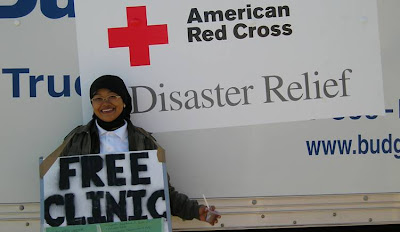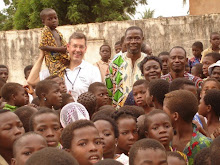Orphans International traditionally raised its largest funds in the fall, and with the Tsunami behind us in 2005 we were ready to show the world what we had done and begin to pay for it all. I was very enthusiastic about how well our contributors would respond to our Herculean efforts in Aceh.
However, on the last day of August, as the images of Katrina on CNN flooded our office, I realized that all funding for the Tsunami was over. Hurricane Katrina was turning our own New Orleans into a developing world disaster, and our president seemed unable or unwilling to lift a finger to assist those who were suffering. I watched in horror at the desperation of my fellow countrymen and could not understand where our government was in responding to this emergency.
In the middle of all of this I received an urgent email: Our Tsunami doctors, who had just completed their assignment with us in Sumatera, had returned to Jakarta to resume their lives. However, with the news of Katrina flashed around the world, they wanted to come to New Orleans immediately, if I would arrange it. What a thought! Muslim doctors from the developing world arriving to save American children. Although this was hardly the direction I had anticipated our relief to be going, I agreed on the spot and rolled into action. China Air based in Taiwan would fly my five doctors over. Everything was set, except for visas.
 OI Sumatera Tsunami doctors arrived at JFK en route to
OI Sumatera Tsunami doctors arrived at JFK en route toNew Orleans to assist in the aftermath of Hurricane Katrina.
The U.S. government does not like to issue visas from many countries, including every country that Orphans International works in. After the events of September 11, the U.S. government has been even more cautious in allowing Muslims to visit us. I called my friend, the Indonesian Ambassador to the United Nations, the Hon. Rezlan Ishar Jenie, who assured me that the U.S. did not want foreign doctors coming in. His government had agreed to fly in 200 emergency workers, but had been asked not to. George Bush might not care about poor people of color who do not vote for him, but the world had a different view.
So I thought, How could I get my doctors U.S. visas? How could I pressure the American Embassy in Jakarta to issue them? I called two journalists I had met, the CNN bureau chief in Jakarta and the Indonesia desk editor of Voice of America in Washington, and told them I had written the American Ambassador in Indonesia a personal request to expedite the Tsunami doctors’ visas on humanitarian grounds, and I asked the two journalists to call the Ambassador to interview him on how the application process was going. They did. Within a few days all our doctors had five-year multi-entry visas.
They arrived about a week later, giving us time to come up with places for them to work in New Orleans. We managed to obtain temporary U.S. doctors’ licenses and they volunteered both in a community health clinic near downtown New Orleans, and with the Red Cross.



No comments:
Post a Comment